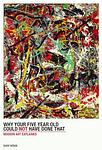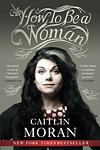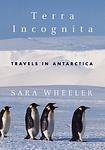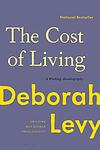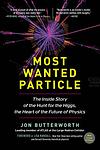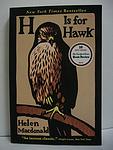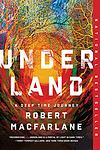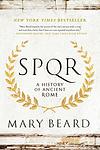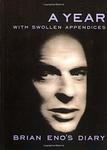The Greatest British "Nonfiction" Books Since 1950
Click to learn how this list is calculated.
This list represents a comprehensive and trusted collection of the greatest books. Developed through a specialized algorithm, it brings together 300 'best of' book lists to form a definitive guide to the world's most acclaimed books. For those interested in how these books are chosen, additional details can be found on the rankings page.
Genres
Countries
Date Range
Reading Statistics
Click the button below to see how many of these books you've read!
Download
If you're interested in downloading this list as a CSV file for use in a spreadsheet application, you can easily do so by clicking the button below. Please note that to ensure a manageable file size and faster download, the CSV will include details for only the first 500 books.
Download-
301. Why Your Five Year Old Could Not Have Done That by Susie Hodge
This book offers a compelling defense of modern art, challenging the common criticism that abstract and contemporary works are so simplistic that a child could have created them. Through an exploration of various modern masterpieces, the author demystifies the techniques, visions, and innovations behind such creations, providing insights into the complexity and depth of thought that these works embody. The book serves as an educational guide, enlightening readers about the artistic value and significance of modern art, and dispelling the notion that its simplicity undermines its legitimacy as a form of skilled and meaningful expression.
-
302. How To Be A Woman by Caitlin Moran
The book is a humorous yet insightful memoir and feminist manifesto that combines personal anecdotes with broader socio-political commentary. The author navigates through various stages of womanhood, from adolescence to middle age, tackling subjects such as body image, workplace inequality, love, and motherhood. By sharing her own experiences and challenges, she invites readers to consider the complexities of being a woman in the modern world, advocating for a more inclusive and liberated approach to feminism that encourages women to embrace their identities and fight for equality.
-
303. The Object Of Morality by G. J. Warnock
"The Object of Morality" explores the nature and foundation of moral judgments, examining whether morality is based on subjective preferences or objective truths. The author delves into the language of moral discourse, the role of intentions and consequences in ethical decision-making, and the societal and personal factors influencing moral behavior. Through a philosophical lens, the book critically assesses various ethical theories and seeks to clarify what truly constitutes the 'object' or core concern of moral considerations, aiming to provide a clearer understanding of what it means to live a morally good life.
-
304. Capitalism Without Capital by Jonathan Haskel
This book delves into the modern economic shift towards an intangible asset-driven economy, distinguishing it from traditional, tangible asset-based systems. It explores how investments in intangible assets like design, branding, R&D, and software are overtaking physical assets in importance, fundamentally altering the landscape of business and economy. The authors analyze the unique challenges and opportunities this shift presents, including issues of economic measurement, policy-making, and the distribution of wealth. Through a comprehensive examination, the book provides insights into how the rise of intangible assets is reshaping capitalism, influencing everything from how companies operate to how economies are managed and grow.
-
305. Terra Incognita by Sara Wheeler
"Terra Incognita" is a detailed and personal account of the author's seven-month journey across Antarctica. The book combines historical research, scientific facts, and the author's personal experiences, providing an insightful look into the harsh and beautiful landscape of Antarctica. It explores the physical and emotional challenges faced by the author as well as the rich history and scientific discoveries associated with the continent.
-
306. Alex Ferguson: My Autobiography by Sir Alex Ferguson
The book is a candid memoir by one of the most successful and respected managers in football history, chronicling his career and life at the helm of one of the world's most famous football clubs. The author reflects on his managerial philosophy, the art of leadership, the highs and lows of his tenure, and his relationships with some of the biggest names in the sport. He shares insights into his personal life, his unwavering commitment to the club, and the strategies that led to numerous domestic and international trophies. This autobiography is not just a chronicle of a storied career, but also a blueprint of what it takes to be at the top in the highly competitive world of professional football.
-
307. The Cost of Living by Deborah Levy
"The Cost of Living" is a memoir that explores the author's journey through womanhood, motherhood, and writing. After her marriage dissolves, the author moves to a dreary apartment with her two daughters, facing the challenges of single parenthood while trying to maintain her career as a writer. The book is a reflection on societal expectations of women, the sacrifices made, and the price paid for freedom and independence. It's a thoughtful meditation on feminism, the complexities of love, and the pursuit of a creative life.
-
308. Rough Crossings by Simon Schama
"Rough Crossings" is a historical account of the experience of African American slaves during the American Revolution. It focuses on the British promise to grant freedom to slaves who joined their cause, and the subsequent journey of these former slaves to Nova Scotia and Sierra Leone. The book explores the complexities of this period in history, questioning the traditional narrative of the American Revolution and shedding light on the struggle for freedom and equality by African Americans.
-
309. How Proust Can Change Your Life by Alain de Botton
This book is a unique blend of literary biography and self-help, which explores the life and work of Marcel Proust. It delves into various aspects of Proust's writing and personal experiences to extract lessons on how to live better, covering topics such as how to love wisely, how to express your emotions more effectively, how to appreciate life's small pleasures, and how to be resilient in the face of suffering and loss. Through a combination of humor, philosophy, and insightful analysis, the book offers practical advice inspired by Proust's profound insights into human nature, making the case that literature can be both instructive and healing.
-
310. Confessions Of A Philosopher by Bryan Magee
"Confessions of a Philosopher" is a personal and intellectual autobiography that delves into the profound journey of a thinker exploring the depths of philosophical inquiry. The author reflects on his own philosophical development, discussing how he grappled with existential questions and was influenced by conversations with notable philosophers. Through a blend of personal narrative and philosophical exploration, the book provides insights into the nature of philosophical thought and its impact on the human experience, offering readers a unique perspective on the challenges and rewards of engaging deeply with philosophical ideas.
-
311. Life On The Edge by Johnjoe McFadden, Jim Al-Khalili
"Life on the Edge" explores the fascinating field of quantum biology, a cutting-edge scientific domain where quantum mechanics meets biology. The book delves into how quantum phenomena, typically observed in the microscopic world of atoms and particles, are integral to the processes of life itself. Through engaging explanations and examples, it examines how quantum mechanics plays a crucial role in various biological mechanisms, from the navigation of birds to our sense of smell and the process of photosynthesis. This intriguing intersection of physics and biology challenges traditional notions and suggests that the quantum world is more relevant to our daily lives than previously thought.
-
312. Most Wanted Particle by Jon Butterworth
"Most Wanted Particle" is an engaging exploration of the world of particle physics, centering on the discovery of the Higgs boson at the Large Hadron Collider (LHC). Written by a leading physicist involved in the search, the book offers a firsthand account of the challenges, triumphs, and day-to-day workings at CERN, one of the world's largest and most respected centers for scientific research. The narrative demystifies complex scientific concepts and provides insights into the collaborative nature of scientific discovery, the excitement of confirming theoretical predictions, and the ongoing quest to understand the fundamental components of the universe.
-
313. The Yorkshire Shepherdess by Amanda Owen
The book is a heartwarming memoir that offers a window into the life of a woman who has embraced the challenges and joys of farming in one of the most remote and rugged regions of England. With humor and honesty, the author recounts her journey from a suburban upbringing to becoming a shepherdess, wife, and mother of a large family on a sprawling farm. Through her stories, readers experience the daily trials and triumphs of rural life, from braving harsh weather and tending to her flock to raising her children in tune with the natural world. The narrative celebrates the resilience of the human spirit, the importance of community, and the simple beauty of a life lived in harmony with the land.
-
314. H Is For Hawk by Helen MacDonald
The book is a profound and elegantly written memoir that intertwines the story of the author's journey through grief following her father's death with her decision to train a fierce goshawk named Mabel. As she confronts the challenges of falconry, the narrative explores themes of solitude, human connection to the natural world, and the process of healing. The author's experience with Mabel serves as a mirror to her inner turmoil, providing a raw and intimate examination of loss, while also offering insights into the history and art of falconry, and reflecting on the life of a notable historical figure who shared her passion for hawks.
-
315. Playing To The Gallery by Grayson Perry
In this candid and witty book, a renowned contemporary artist offers a sharp, insightful critique of the modern art world, demystifying its practices and challenging the status quo. The author navigates through the complexities of what makes art valuable, how taste is formed, and the often-invisible power dynamics at play within the gallery system. With a blend of humor and provocation, the book serves as a guide for both art lovers and skeptics, encouraging readers to question the nature of authenticity and the meaning of art itself, while also providing practical advice for aspiring artists looking to carve out a space for themselves in the competitive art scene.
-
316. Meadowland by John Lewis-Stempel
"Meadowland" provides an intimate and evocative month-by-month account of a year in the life of a farmland meadow in the heart of rural England. The author, a farmer and naturalist, offers rich descriptions of the landscape and wildlife, weaving personal observations with poetry and lore. Through the changing seasons, from the first snowdrops of January to the December frost, readers are immersed in the natural world and its cycles. The book celebrates the beauty and complexity of an ecosystem often overlooked, highlighting the intricate relationships between plants, animals, and the land, and urging a deeper appreciation for the unassuming yet vital meadows of the countryside.
-
317. Underland by Robert Macfarlane
"Underland" is a deep exploration into the world beneath our feet, taking readers on a journey into the Earth's underworlds. The book delves into the hidden landscapes of the subterranean, from the catacombs of Paris, the underground fungal networks in forests, to the deep sea caves and glacial crevasses. It beautifully combines natural history, mythology, and environmental science, while exploring themes of human impact on the planet, our relationship with darkness, and the concept of deep time.
-
318. Nine Pints by Rose George
This book offers an in-depth exploration of blood, a substance that is both a vital component of our physiology and a symbol of life, death, and disease throughout human history. The narrative takes readers on a global journey, delving into the science, culture, and commerce of blood, from the history of bloodletting to the contemporary controversies surrounding blood donation and the blood trade. Through engaging storytelling, the author reveals the complexities of blood as a biological entity and its broader significance in society, touching on topics such as menstruation, bloodborne diseases, and the life-saving role of blood transfusions, while also examining the ethical implications of blood banking and the global inequalities in blood supply and access.
-
319. The Future Of Capitalism by Paul Collier
In "The Future of Capitalism," the author delves into the current challenges facing capitalist societies, including deepening economic divides, geographical disparities, and the erosion of ethical norms that have traditionally guided market economies. The book argues for a reinvention of capitalism, advocating for a model that emphasizes social solidarity, a sense of obligation to the community, and policies that address the needs of the most vulnerable. Through a blend of personal experience, economic analysis, and policy recommendations, the author makes a compelling case for a more ethical and inclusive form of capitalism that can address the 21st century's complex social and economic issues.
-
320. The Beast In The Nursery by Adam Phillips
"The Beast in the Nursery" is a thought-provoking exploration of the themes of child development and creativity, delving into the ways in which our early experiences shape our adult perceptions and our creative impulses. The book examines the concept of the 'beast' within the context of our inner drives and fears, suggesting that our early encounters with language and desire significantly influence our later lives. Through a series of essays, the author intertwines psychoanalytic theory with literature and personal anecdotes, offering insightful reflections on how our childhood experiences continue to resonate within us, potentially stifling or fostering our creative potential.
-
321. Boggs by Lawrence Weschler
"Boggs" is a compelling exploration of the life and work of an artist who challenges the concept of money by creating hand-drawn, detailed replicas of currency. The artist's meticulous works are not mere counterfeits, but rather pieces of art that question the value and meaning of money. The narrative delves into the artist's interactions with the legal system and the art world, examining the philosophical and legal implications of his work. Through these interactions, the book raises profound questions about art, value, and the legal structures governing currency and counterfeiting.
-
322. Five Days In London by John Lukacs
The book provides a detailed historical account of a critical period during World War II, specifically focusing on five days in May 1940. It explores the intense political and military deliberations that took place among British leadership as they faced the dire threat of Nazi Germany. Central to the narrative is Winston Churchill's pivotal role in rallying his war cabinet and the British public to stand firm against Hitler, despite pressures to negotiate peace. The author uses a wealth of sources to reconstruct the debates and decisions that shaped the course of the war and underscored Churchill's leadership during Britain's "darkest hour."
-
323. Memories Of The Great And The Good by Alistair Cooke
"Memories of the Great and the Good" offers a collection of insightful essays that reflect on the lives and legacies of various prominent figures from the 20th century. Through a series of vivid portraits, the book delves into the personal and professional lives of politicians, artists, and celebrities, revealing their human sides and the impacts they had on society and culture. The author, a seasoned journalist, draws from his rich experiences and encounters, providing readers with a deeper understanding of these influential individuals and the times in which they lived.
-
324. Spqr by Mary Beard
This book is a sweeping historical narrative that delves into the heart of ancient Rome, exploring its rise from an insignificant village in central Italy to a world-dominating superpower that lasted for centuries. The author, a renowned classicist, examines not just the famous emperors and battles, but also the lives of the everyday people, the political and social structures, and the complexities of Roman culture. Through a blend of historical analysis, anecdotal evidence, and a fresh perspective, the book challenges preconceived notions about Roman history and provides a nuanced understanding of how this vast empire's legacy continues to influence the modern world.
-
325. A Year by Brian Eno
This book is a collection of diary entries, essays, and musings by a renowned musician and producer known for his work in ambient music and contributions to various other genres. Over the course of a year, the author reflects on his creative process, the nature of art and music, and his interactions with other artists and cultural figures. The entries provide insight into his thoughts on the evolution of music, the role of technology in art, and his philosophical perspectives on life and the world around him. The book serves as a window into the mind of an influential artist, offering readers a unique look at his day-to-day life and the intellectual underpinnings of his work.
Reading Statistics
Click the button below to see how many of these books you've read!
Download
If you're interested in downloading this list as a CSV file for use in a spreadsheet application, you can easily do so by clicking the button below. Please note that to ensure a manageable file size and faster download, the CSV will include details for only the first 500 books.
Download